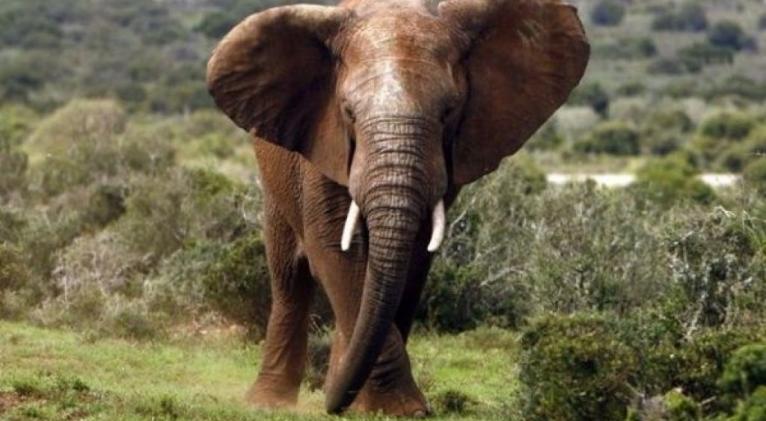Bees May Be The Secret To Elephant Conservation: Scientists

Betting on the age-old saying 'elephants never forget,' researchers created a chemical similar to the 'alarm pheromones' released by bees when threatened.
A new scientific study says bee pheromones may provide a safe repellent for frustrated African farmers struggling with seasonal elephant migrations, potentially aiding conservation of the species.
Rather than installing costly and difficult-to-manage beehives, a traditional African strategy which plays on elephants' phobia of the winged insects, researchers have developed a cheaper and more sophisticated method.
A team of scientists working at the Greater Kruger National Park in South Africa discovered that when disturbed, a hive of bees will release pheromones into the air – a natural elephant-repellent.
"We hypothesize that (elephants) learn to respond to the odor of the pheromones, associating the smell with negative experiences when interacting with beehives," said Mark Wright, a co-author of the study and entomology professor at the Department of Plant and Environmental Protection Sciences at the University of Hawaii at Manoa.
Betting on the age-old saying 'elephants never forget,' researchers teamed up with the biotech company ISCA Technologies to create a similar chemical composition from isoamyl acetate, which they hung in socks along the perimeter of the farm.
As expected, 25 of the 29 elephants recorded approaching the farm were deterred after encountering the pheromone-covered sock and "showed typical signs of increased alertness, signs of uncertainty, and finally calmly moved away," the report said.
In their report, researchers said: "The need for safe elephant management strategies has become more pressing as human populations have grown in Africa and Asia, creating larger areas where elephants conflict with humans by trampling crops or causing other damage."
In an interview with Inverse, Wright said: "Human-wildlife conflict is a serious problem, and developing sustainable and effective ways to deter elephants from breaking fences and raiding farms is a valuable contribution."
The study supported previous research but, despite its success, could be hard to implement on a large scale, he said.
The discovery comes as World Elephant Day is celebrated on August 12 to bring awareness to poaching and other threats to the majestic creatures' environment.
"We hope to expand this work to develop additional tools for sustainable passive management of elephant movements, to augment the current approaches used," Wright concluded.













Add new comment